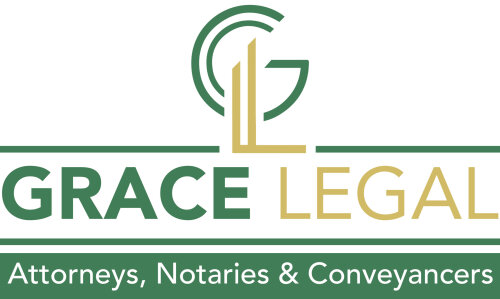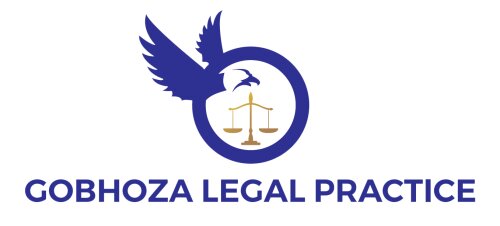Best Structured Finance Lawyers in Gaborone
Share your needs with us, get contacted by law firms.
Free. Takes 2 min.
List of the best lawyers in Gaborone, Botswana
About Structured Finance Law in Gaborone, Botswana
Structured finance is a specialized area of finance that involves complicated financial instruments designed to help organizations raise capital, diversify risk, and meet unique financial needs. In Gaborone, Botswana, structured finance typically supports larger transactions and is common with banks, financial institutions, corporations, and public sector entities. These transactions may include securitisation, syndicated loans, asset-backed securities, or project finance arrangements. The highly regulated nature of these financial transactions in Botswana means that legal expertise is essential to ensure compliance and manage risk.
Why You May Need a Lawyer
People and organizations may seek legal guidance in structured finance for several reasons. Common scenarios include:
- Negotiating and drafting complex financing agreements
- Structuring transactions to comply with Botswana’s laws and regulations
- Handling cross-border elements or foreign investment in local projects
- Mitigating and allocating risk among different parties in a transaction
- Ensuring transactions meet regulatory and tax requirements
- Navigating disputes or defaults related to structured finance transactions
- Obtaining regulatory approvals and engaging with financial authorities
- Advising on the issuance of bonds and debt securities
Given the high stakes and complexity involved, expert legal advice helps to protect your interests and ensures deals are both enforceable and compliant with local law.
Local Laws Overview
Structured finance in Botswana operates within a framework of local laws and international best practices. Key regulations and legal considerations include:
- Botswana Companies Act - Governs the formation and operation of companies, including special purpose vehicles used in structured finance.
- Bank of Botswana Act - Establishes regulations for banking operations, capital requirements, and participation in lending syndicates.
- Financial Intelligence Act - Contains anti-money laundering provisions relevant to complex financial transactions.
- Income Tax Act - Sets tax treatment for financial instruments and structures used in these transactions.
- Securities Act - Regulates the issuance and trading of securities, including asset-backed securities and bonds.
- Government and Regulatory Approvals - Approvals from the Bank of Botswana, Non-Bank Financial Institutions Regulatory Authority (NBFIRA), and other bodies may be required, depending on the nature of the transaction.
Engaging a lawyer with local expertise is important to navigate these regulatory requirements, as structured finance deals must often be customized to fit within this legal environment.
Frequently Asked Questions
What is structured finance and how is it used in Botswana?
Structured finance involves arranging complex financial products that use multiple parties and instruments to fund significant business or government projects. In Botswana, it is mostly used for infrastructure, large corporate funding, and government initiatives.
Do I need regulatory approval for structured finance transactions?
Yes, many structured finance deals require regulatory approval. This may include the Bank of Botswana, NBFIRA, or the Botswana Stock Exchange for public securities issues.
Are there special tax considerations for structured finance in Botswana?
Structured finance transactions can trigger unique tax consequences. Tax structuring is important for minimizing costs and avoiding penalties, so legal advice is crucial.
Can foreign investors participate in structured finance transactions?
Yes, foreign investors can participate, but must comply with exchange control regulations and obtain any necessary approvals from authorities.
What are typical risks involved in structured finance?
Risks include credit risk, regulatory changes, operational issues, and market fluctuations. Sound legal structure and documentation help mitigate these risks.
Can individuals benefit from structured finance, or is it just for companies?
Structured finance is generally geared toward large organizations, but individuals may participate indirectly as investors in securities or project funds.
What legal documents are required for a structured finance arrangement?
Key documents include facility agreements, security documents, intercreditor agreements, and disclosure statements, all tailored to the specific transaction.
What happens if there is a default in a structured finance transaction?
Remedies depend on the agreements and securities in place. Legal recourse may involve asset seizure, enforcement of guarantees, or court proceedings.
Can structured finance be used for public-private partnerships in Botswana?
Yes, structured finance is commonly used in public-private partnership (PPP) projects, especially in infrastructure, energy, and utilities.
How do I choose the right lawyer for structured finance in Gaborone?
Look for a firm or individual with experience in structured finance, knowledge of Botswana’s legal environment, and a track record in similar transactions.
Additional Resources
If you are seeking further information or guidance, consider contacting the following organizations and authorities:
- Bank of Botswana - The central bank responsible for financial sector regulation
- Non-Bank Financial Institutions Regulatory Authority (NBFIRA) - Oversees non-bank financial services
- Botswana Stock Exchange - For matters related to publicly listed securities and bonds
- Botswana Ministry of Finance - Policy direction for major government-backed projects
- Botswana Law Society - For finding a qualified legal practitioner
- Local commercial and corporate law firms with structured finance expertise
Next Steps
If you believe you require legal help with a structured finance matter in Gaborone, begin by clearly outlining your objectives for the transaction. Gather all available information related to the proposed deal or project. Next, consult a legal practitioner or law firm with proven experience in structured finance and an understanding of Botswana’s business environment. Be prepared to discuss your needs in detail, and be open about any regulatory or compliance concerns.
Finally, work closely with your legal advisor throughout deal structuring, due diligence, negotiation, and implementation. The right legal support is essential for protecting your interests, managing risks, and achieving your financial goals.
Lawzana helps you find the best lawyers and law firms in Gaborone through a curated and pre-screened list of qualified legal professionals. Our platform offers rankings and detailed profiles of attorneys and law firms, allowing you to compare based on practice areas, including Structured Finance, experience, and client feedback.
Each profile includes a description of the firm's areas of practice, client reviews, team members and partners, year of establishment, spoken languages, office locations, contact information, social media presence, and any published articles or resources. Most firms on our platform speak English and are experienced in both local and international legal matters.
Get a quote from top-rated law firms in Gaborone, Botswana — quickly, securely, and without unnecessary hassle.
Disclaimer:
The information provided on this page is for general informational purposes only and does not constitute legal advice. While we strive to ensure the accuracy and relevance of the content, legal information may change over time, and interpretations of the law can vary. You should always consult with a qualified legal professional for advice specific to your situation.
We disclaim all liability for actions taken or not taken based on the content of this page. If you believe any information is incorrect or outdated, please contact us, and we will review and update it where appropriate.















